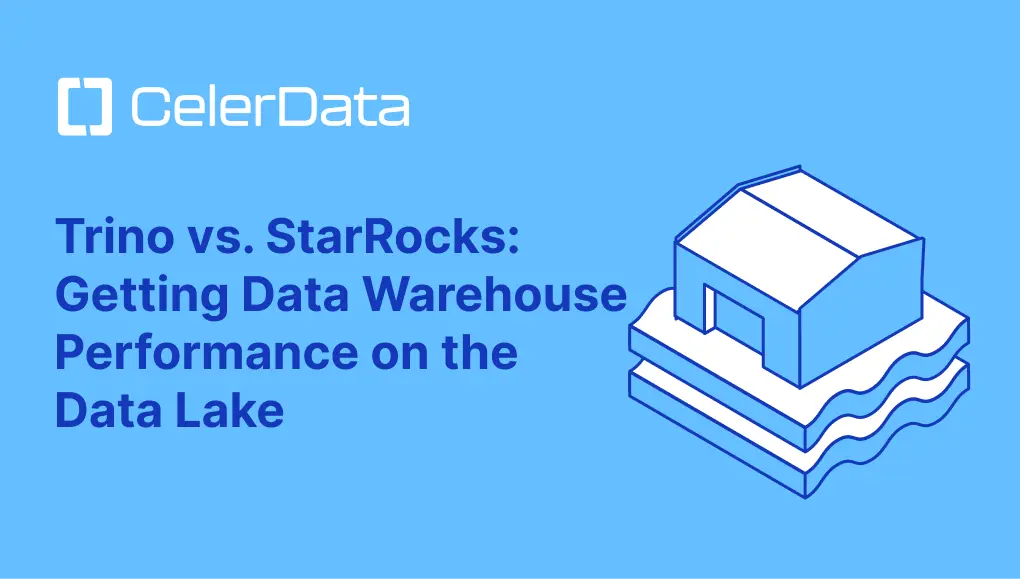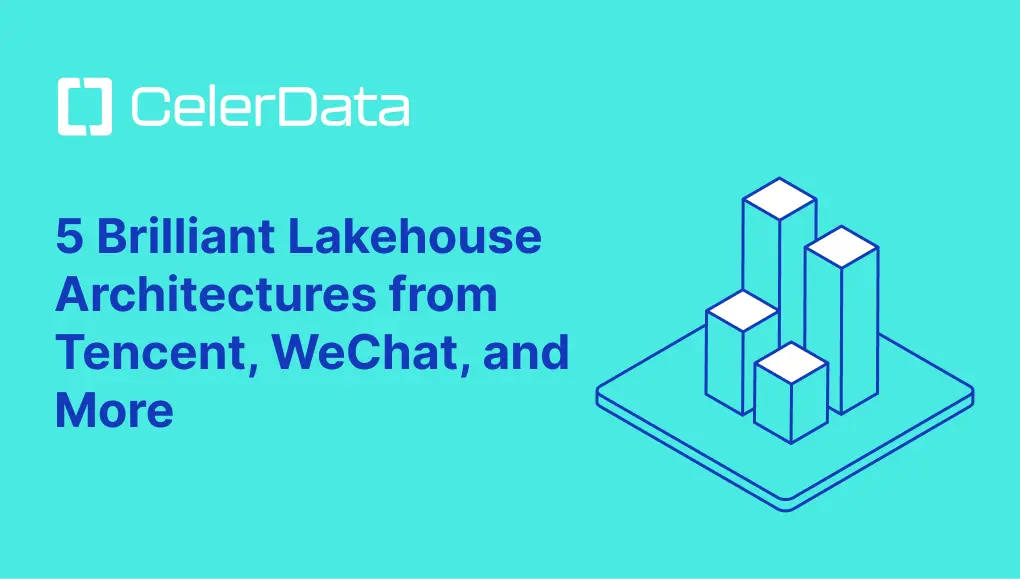
Data Sharing

Join StarRocks Community on Slack
Connect on SlackWhat is Data Sharing?
Data Sharing refers to the process of making data resources accessible to multiple applications, users, or organizations. This practice transforms data into a strategic asset, allowing different entities to access the same information. Data Sharing ensures consistency across all consumers, fostering collaboration and innovation. The concept of Data Sharing extends beyond mere availability; it emphasizes creating value through shared insights and knowledge. Organizations can enhance their credibility and foster connections with customers by demonstrating a commitment to Data Sharing.
Types of Data Sharing
Data Sharing encompasses various types, each serving distinct purposes. Internal Data Sharing involves sharing data within an organization, facilitating seamless communication among departments. External Data Sharing allows organizations to share data with external partners, enhancing collaboration and driving innovation. Open Data Sharing promotes transparency by making data publicly available, enabling broader access to valuable information. Each type of Data Sharing plays a crucial role in breaking down data silos and unlocking new opportunities for growth.
Methods and Solutions for Data Sharing
Traditional Methods
Physical Media
Organizations have historically relied on physical media for Data Sharing. Devices like USB drives, CDs, and DVDs served as primary tools for transferring data between entities. These methods provided a tangible way to share data but posed challenges in terms of security and efficiency. Physical media required manual handling, which increased the risk of data loss or unauthorized access. Despite these drawbacks, physical media played a crucial role in early Data Sharing practices.
Direct Transfers
Direct transfers represent another traditional method for Data Sharing. This approach involves connecting devices directly to exchange data. Examples include using cables or local networks to facilitate data movement. Direct transfers offered faster data exchange compared to physical media. However, this method required compatible hardware and often faced limitations in terms of scalability. Direct transfers laid the groundwork for more advanced Data Sharing solutions.
Modern Methods
Cloud-Based Sharing
Cloud-based Sharing revolutionized how organizations handle data. This method leverages cloud infrastructure to store and share data seamlessly. Businesses can access shared data from any location, enhancing flexibility and collaboration. Cloud-based Sharing eliminates the need for physical storage devices, reducing costs and improving security. Organizations benefit from real-time data access, enabling faster decision-making and innovation.
APIs and Data Portals
APIs and Data Portals have become essential tools for modern Data Sharing. APIs allow different software applications to communicate and share data efficiently. This method streamlines Data Sharing by automating processes and reducing manual intervention. Data Portals provide centralized platforms where users can access and share data securely. These portals enhance Data Sharing by offering user-friendly interfaces and robust security features.
Data Sharing Solutions
AWS Data Sharing
AWS Data Sharing offers comprehensive solutions for secure and efficient Data Sharing. This platform utilizes AWS's cloud infrastructure to facilitate seamless data access across applications and organizations. Businesses leverage AWS Data Sharing to break down data silos and enhance collaboration. The platform provides advanced security features, ensuring data integrity and compliance with regulations. AWS Data Sharing empowers organizations to harness the full potential of their data.
Delta Sharing and Starburst
Delta Sharing represents a groundbreaking solution for secure Data Sharing. Developed by Databricks, Delta Sharing uses an open protocol to enable real-time data exchange. This solution supports various data processing methods, including batch, incremental, and stream processing. Organizations benefit from Delta Sharing's ability to abstract data location, allowing seamless access across different environments.
Benefits and Impact of Data Sharing
Enhancing Collaboration
Data Sharing plays a crucial role in academic and research settings. Researchers use data to validate findings and explore new ideas. Data Sharing eliminates data silos, allowing researchers to access diverse datasets. This practice fosters collaboration among scientists from different disciplines. The Open Science Framework exemplifies how data sharing efforts enhance transparency. Researchers can share data and methodologies, promoting openness in scientific inquiry. Data Sharing accelerates discoveries and reinforces the credibility of research.
Driving Innovation
Open Data Initiatives
Open data initiatives promote transparency and accessibility. Governments and organizations release data to the public, fostering innovation. Open data enables researchers and developers to create new applications. Data Sharing supports open data efforts by providing secure data sharing solutions. Platforms like Delta Sharing facilitate real-time data exchange. Delta Sharing empowers organizations to share data securely with external partners. Open data initiatives drive social and economic progress by enabling data-driven solutions.
Data Sharing Unlocks Insights
Overcoming Data Silos
Data silos hinder collaboration and limit access to valuable information. Data Sharing eliminates data silos by facilitating seamless data exchange. Organizations use platforms like Delta Sharing to integrate data across systems. Delta Sharing supports various data processing methods for flexibility. Businesses overcome data silos by accessing shared data from multiple sources. Data Sharing enhances collaboration and drives innovation by breaking down barriers.
Data Integration and Improved Decision-Making
Data integration involves combining data from different sources for analysis. Organizations use data integration to gain comprehensive insights. Data Sharing supports data integration by providing secure data sharing solutions. Platforms like Starburst enable efficient data processing and analysis. Starburst Galaxy offers advanced analytics for improved decision-making. Data Sharing unlocks insights that enhance strategic planning and operational efficiency. Organizations achieve better results by leveraging integrated data for informed decisions.
Challenges and Considerations in Data Sharing
Privacy and Security Concerns
Data Breaches
Data breaches pose significant threats to organizations engaged in data sharing. Unauthorized access to sensitive data can lead to financial losses and reputational damage. Institutions mandate data sharing, but they must prioritize security measures to protect data fields. Legal frameworks like the Gramm-Leach-Bliley Act (GLBA) require financial institutions to safeguard sensitive data. Organizations must implement robust security protocols to prevent unauthorized access and ensure data integrity.
Compliance with Regulations
Compliance with data protection regulations is crucial for organizations involved in data sharing. A complex web of data protection laws governs the handling of personally identifiable information. The EU-U.S. Data Privacy Framework plays a significant role in data privacy considerations. Organizations must adhere to these regulations to avoid legal repercussions. Compliance ensures that data sharing practices align with privacy principles and accountability standards.
Technical and Logistical Issues
Data Compatibility
Data compatibility presents challenges in data sharing initiatives. Different systems may use varying data formats, hindering seamless data exchange. Organizations must explore Introduction to Data compatibility solutions to facilitate efficient data sharing. The Delta Sharing Databricks ODSC platform offers tools to overcome compatibility issues. Delta Sharing enables organizations to integrate data across diverse environments, enhancing collaboration and innovation.
Infrastructure Limitations
Infrastructure limitations can impede effective data sharing. Organizations must invest in robust infrastructure to support data mesh and integrated data system initiatives. Platforms like Starburst provide advanced analytics capabilities, enabling organizations to overcome infrastructure challenges. Starburst facilitates data access and processing, ensuring efficient data sharing. By addressing infrastructure limitations, organizations can unlock the full potential of their data sources.
Practical Applications and Case Studies
Healthcare
Patient Data Sharing
Data Sharing in healthcare enhances patient care by providing healthcare professionals with comprehensive access to patient information. Integrated data systems enable seamless communication between healthcare providers, ensuring accurate diagnoses and personalized treatment plans. The CHHS (California Health and Human Services) exemplifies effective data sharing by integrating patient records across various health facilities. This approach reduces medical errors and improves patient outcomes. Data sharing allows stakeholders to make informed decisions, ultimately leading to better healthcare services.
Research and Development
Research and development in healthcare benefit significantly from data sharing. Researchers can access diverse data sources to explore new treatments and therapies. The IDEAS Consortium for Children focuses on sharing data related to Early Childhood and Preschool development. This initiative enhances understanding of child health and development, leading to innovative solutions for common health challenges. Data sharing fosters collaboration among researchers, accelerating discoveries and improving public health.
Government and Public Sector
Open Government Data
Open government data initiatives promote transparency and accountability. Governments release data to the public, enabling citizens to learn about government activities and policies. The Early Childhood Iowa Statewide program utilizes open data to improve early childhood services. By making data accessible, governments empower citizens to engage in informed discussions and contribute to policy-making processes. Open data initiatives drive social progress by fostering trust between governments and citizens.
Public Safety and Emergency Response
Data sharing plays a crucial role in public safety and emergency response. Integrated data systems allow agencies to share information quickly during emergencies. The County emergency management departments use data sharing to coordinate responses to natural disasters and public health crises. Access to real-time data enables efficient resource allocation and timely interventions. Data sharing enhances the effectiveness of emergency response efforts, safeguarding communities and saving lives.
Business and Industry Cases
Data Sharing in Organizations
Organizations leverage data sharing to improve decision-making and operational efficiency. Integrated data systems provide businesses with a comprehensive view of their operations, enabling them to make data-driven decisions. The Human Services Agency uses data sharing to streamline service delivery and improve client outcomes. Businesses benefit from enhanced data quality and improved context, leading to better strategic planning and execution.
Data Marketplaces and Linked Data
Data marketplaces facilitate the exchange of data between organizations, driving innovation and growth. Linked data initiatives connect disparate data sources, creating a unified data network. The Data Lakehouse architecture supports data integration, allowing businesses to explore new opportunities and optimize operations. Data sharing enables organizations to access valuable insights, enhancing competitiveness and fostering collaboration.
The Future of Data Sharing
Emerging Trends
AI and Machine Learning
Artificial Intelligence (AI) and Machine Learning (ML) will shape the future of data sharing. AI algorithms analyze shared data to uncover patterns and insights. Machine learning models enhance the efficiency of data processing systems. Natural language processing improves user interaction with data platforms. AI-driven analytics tools revolutionize diagnostics and treatment planning in healthcare. Shared data fuels these advancements, leading to innovative solutions.
Blockchain Technology
Blockchain technology offers a secure framework for data sharing. Decentralized ledgers ensure data integrity and transparency. Blockchain provides tamper-proof records of data transactions. Organizations use blockchain to protect sensitive information. Blockchain enhances trust among data-sharing partners. This technology supports compliance with data protection regulations.
Predictions and Opportunities
Global Data Sharing Initiatives
Global data sharing initiatives promote collaboration across borders. International organizations exchange data to address global challenges. Shared data improves strategic alignment among stakeholders. These initiatives foster innovation and drive economic growth. Data sharing enhances decision-making processes on a global scale. Organizations benefit from increased productivity and improved data quality.
New Business Models
Data sharing creates opportunities for new business models. Companies leverage shared data to develop innovative products and services. Data marketplaces facilitate the exchange of valuable information. Organizations use linked data to gain competitive advantages. Data-driven strategies improve customer experiences and operational efficiency. Businesses harness data sharing to unlock new revenue streams.
Conclusion
Data sharing stands as a cornerstone in the modern digital landscape. Organizations harness data sharing to enhance collaboration and drive innovation. This practice empowers stakeholders to learn from each other and collaborate on shared priorities. Data sharing fosters trust in data reliability and enhances collective knowledge. Researchers benefit from improved methodologies and cost-effective collaboration. In healthcare, data sharing significantly enhances patient care and research efficiency. Responsible and innovative data sharing practices ensure ethical and secure data utilization. Embracing these practices unlocks new opportunities for growth and improvement across industries.



.jpg)